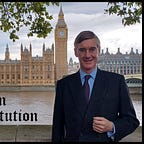It is commonly said that Britain does not have a written constitution. This is not quite true. There are many Acts of Parliament that form the constitutional settlement, as well as volumes such as Erskine May and the standing orders of the two Houses of Parliament, combined with learned judgments that have a constitutional effect.
All of these are written down, so the Constitution is written, but it is not codified. There is not a single document that may be pointed to, and the unwritten conventions that allow the Constitution to operate are crucial. However, these conventions evolve, and it is only in retrospect that they can be seen to have solidified into a norm.
The post of Prime Minister is an interesting example, and its evolution complex. Walpole is recognised as the first Prime Minister, although Godolphin and Marlborough before him had been called such in the reign of Queen Anne, and it was initially a term of abuse. Interestingly, Pitt the Elder, in his great ministry, and Newcastle, when First Lord of the Treasury, were never called Prime Minister at the time, even though they are now listed as such.
The reason Walpole was the first is essentially because of the development of Cabinet government. Even today, the Cabinet does not have any formal legal status. It has merely emerged. In the reign of Elizabeth I, the Privy Council was the main decision-making body, and the Queen was an essential part of it.













